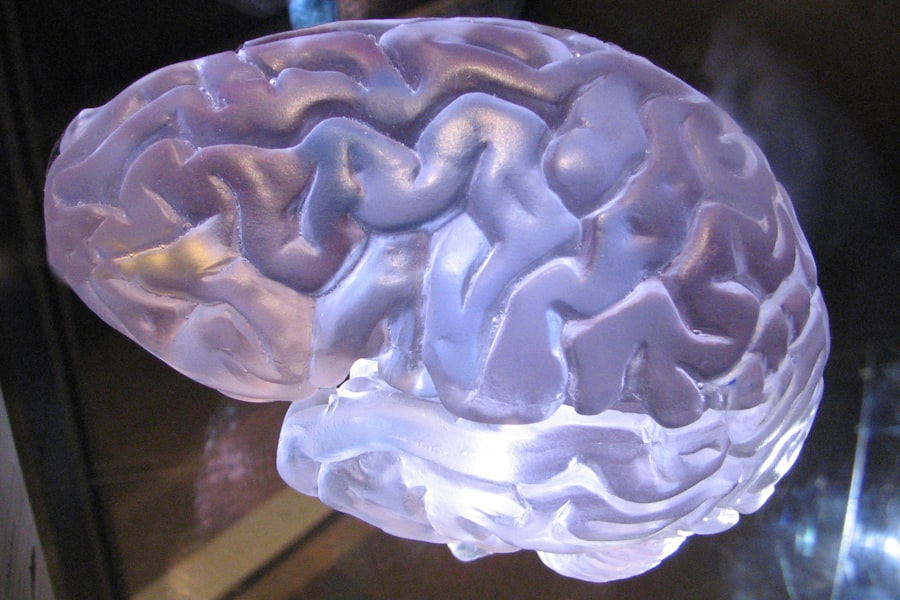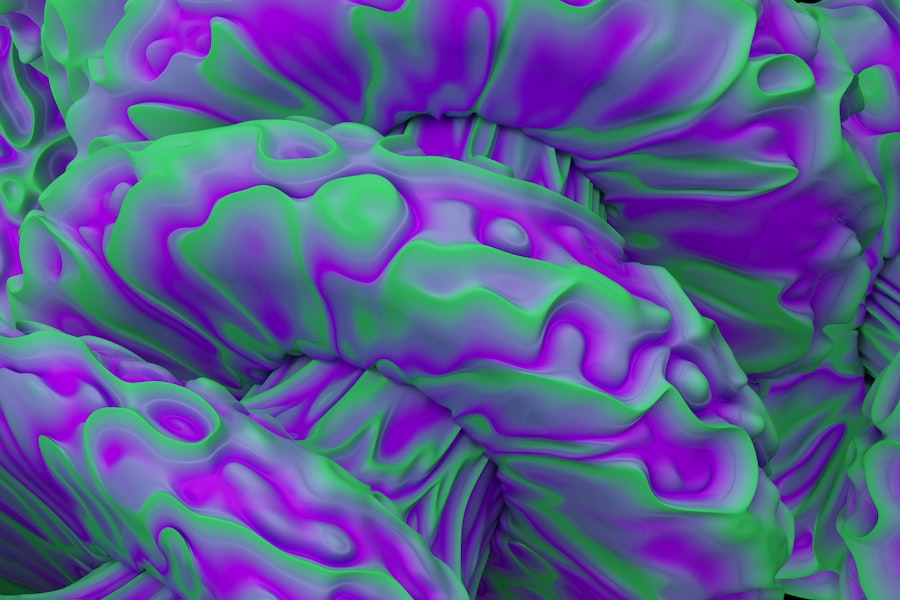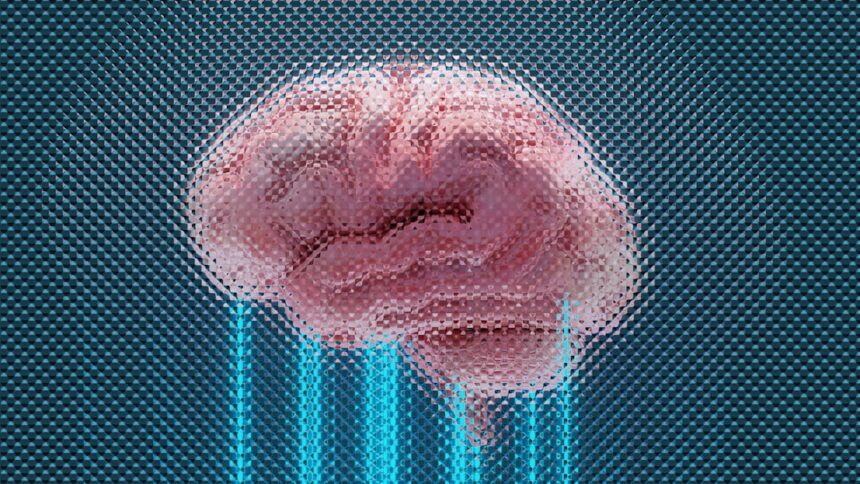Dopamine is a neurotransmitter that plays a pivotal role in the brain’s reward system, influencing how you experience pleasure and motivation. It is often referred to as the “feel-good” chemical, as it is released during enjoyable activities, reinforcing behaviors that lead to positive outcomes. However, dopamine’s functions extend beyond mere pleasure; it is intricately linked to the concept of reward prediction error.
This term refers to the difference between expected and actual rewards, which can significantly impact your learning processes and decision-making abilities. Understanding dopamine and reward prediction error is essential for grasping how you navigate your environment, make choices, and respond to various stimuli. As you delve deeper into the relationship between dopamine and reward prediction error, you will discover that this connection is fundamental to many aspects of human behavior.
The brain uses dopamine to signal when an outcome is better or worse than anticipated, allowing you to adjust your future actions accordingly. This mechanism not only shapes your learning experiences but also influences your emotional responses and overall motivation. By exploring these concepts, you can gain valuable insights into how your brain processes rewards and how this affects your daily life.
Key Takeaways
- Dopamine plays a key role in reward prediction error, which is the difference between the expected and actual reward.
- Dopamine is involved in various brain functions, including learning, decision making, motivation, addiction, and impulse control.
- Understanding reward prediction error helps in comprehending how dopamine influences learning and decision making processes.
- Dopamine’s influence on motivation is crucial for understanding how it drives behavior and goal-directed actions.
- Dysregulation of dopamine is linked to mental health disorders, risk-taking behavior, reinforcement learning, and Pavlovian conditioning.
The Role of Dopamine in the Brain
Dopamine is produced in several areas of the brain, including the substantia nigra and the ventral tegmental area (VTA). These regions are crucial for regulating movement, emotion, cognition, and reward. When dopamine is released, it binds to receptors in various parts of the brain, including the striatum and prefrontal cortex, which are involved in decision-making and goal-directed behavior.
This intricate network allows dopamine to influence not only your immediate feelings of pleasure but also your long-term goals and aspirations. The role of dopamine extends beyond just reward processing; it also plays a significant part in motor control and coordination. For instance, when you engage in physical activities or even simple tasks like walking, dopamine helps facilitate smooth movements.
Thus, understanding dopamine’s multifaceted role in the brain can provide you with a clearer picture of how it affects both your physical actions and emotional states.
Understanding Reward Prediction Error

Reward prediction error is a critical concept that describes how your brain evaluates outcomes based on expectations. When you anticipate a reward and receive it, your brain registers a positive prediction error, reinforcing the behavior that led to that outcome. Conversely, if the reward falls short of your expectations, a negative prediction error occurs, prompting you to adjust your future behavior.
This process is essential for learning and adapting to new situations, as it helps you refine your understanding of cause-and-effect relationships. To illustrate this concept further, consider a scenario where you go out for ice cream. If you expect a delicious treat and it exceeds your expectations, the positive prediction error reinforces your desire to seek out ice cream again in the future.
However, if the ice cream is stale or unappetizing, the negative prediction error may deter you from making that choice again. This dynamic interplay between expectation and outcome shapes your preferences and influences your decision-making processes over time.
Dopamine’s Influence on Learning and Decision Making
| Study | Findings |
|---|---|
| Research 1 | Dopamine plays a crucial role in reinforcement learning and motivation. |
| Research 2 | Dopamine levels affect the speed and flexibility of learning. |
| Research 3 | Dopamine imbalance can lead to impaired decision making and addiction. |
Dopamine plays a crucial role in learning by signaling when an outcome is better or worse than expected. This signaling mechanism allows you to adjust your behavior based on past experiences, making it easier to navigate complex environments. When you encounter new information or experiences, dopamine helps encode these events in your memory, ensuring that you can recall them when faced with similar situations in the future.
Moreover, dopamine influences decision-making by weighing potential rewards against risks. When you are faced with choices, the brain assesses the likelihood of positive outcomes based on previous experiences. If dopamine levels are high due to anticipated rewards, you may be more inclined to take risks or pursue opportunities that promise greater satisfaction.
Conversely, low dopamine levels may lead to more cautious decision-making as you weigh potential losses more heavily than gains.
The Relationship Between Dopamine and Motivation
Motivation is deeply intertwined with dopamine levels in the brain. When you experience a surge of dopamine in response to a rewarding stimulus, it enhances your drive to pursue similar experiences in the future. This relationship explains why certain activities—such as eating delicious food or engaging in enjoyable hobbies—can become highly motivating.
The anticipation of reward triggers dopamine release, creating a cycle that reinforces behaviors associated with pleasure. However, motivation can also be influenced by external factors such as stress or environmental cues. For instance, if you are under significant stress or facing challenges, your dopamine levels may fluctuate, impacting your motivation to engage in activities that once brought you joy.
Understanding this relationship can help you identify strategies to boost motivation when needed, whether through setting achievable goals or seeking out rewarding experiences that align with your interests.
Dopamine’s Role in Addiction and Impulse Control

Dopamine’s influence extends into the realm of addiction and impulse control. Substances such as drugs and alcohol can hijack the brain’s reward system by artificially increasing dopamine levels. This surge creates intense feelings of pleasure that can lead to compulsive behaviors and addiction.
As you may know from personal experiences or observations, individuals struggling with addiction often find it challenging to resist cravings despite negative consequences. The relationship between dopamine and impulse control is complex; while dopamine can enhance motivation for rewarding behaviors, it can also diminish self-control when those behaviors become maladaptive. For example, when faced with tempting stimuli—such as junk food or gambling—elevated dopamine levels may lead you to act impulsively rather than considering long-term consequences.
Recognizing this dynamic can empower you to develop healthier coping strategies and make more informed choices regarding addictive behaviors.
Dopamine Dysregulation and Mental Health Disorders
Dopamine dysregulation has been implicated in various mental health disorders, including depression, schizophrenia, and attention deficit hyperactivity disorder (ADHD).
Conversely, excessive dopamine activity has been linked to symptoms of schizophrenia, such as hallucinations and delusions.
Understanding how dopamine functions within these disorders can provide valuable insights into treatment options. For instance, medications that target dopamine receptors may help alleviate symptoms by restoring balance within the brain’s reward system. Additionally, therapeutic approaches that focus on behavioral activation can encourage individuals to engage in rewarding activities, ultimately enhancing their overall well-being.
The Impact of Dopamine on Risk-Taking Behavior
Dopamine significantly influences risk-taking behavior by modulating how you perceive potential rewards versus potential losses. When faced with uncertain outcomes, elevated dopamine levels can enhance your willingness to take risks in pursuit of greater rewards. This phenomenon is particularly evident in situations involving gambling or high-stakes decision-making.
However, while some level of risk-taking can be beneficial—encouraging exploration and innovation—excessive risk-taking driven by dysregulated dopamine levels can lead to detrimental consequences. Understanding this balance is crucial for making informed decisions that align with your values and long-term goals. By recognizing when dopamine may be influencing your choices, you can cultivate greater self-awareness and make more deliberate decisions.
Dopamine’s Role in Reinforcement Learning and Pavlovian Conditioning
Reinforcement learning is a process through which you learn behaviors based on rewards or punishments associated with those actions. Dopamine plays a central role in this learning process by signaling when an outcome aligns with expectations. In Pavlovian conditioning—where an initially neutral stimulus becomes associated with a reward—dopamine helps reinforce these associations over time.
For example, if you consistently receive praise for completing tasks at work, the positive reinforcement activates dopamine pathways in your brain, making you more likely to repeat those behaviors in the future. This mechanism highlights how reinforcement learning shapes not only individual behaviors but also broader patterns of interaction within social contexts.
The Neurobiology of Dopamine and Reward Prediction Error
The neurobiology of dopamine involves complex interactions between various brain regions responsible for processing rewards and predicting outcomes. The mesolimbic pathway—a key component of the brain’s reward system—connects areas such as the VTA to the nucleus accumbens and prefrontal cortex. This circuitry allows for efficient communication between regions involved in motivation, decision-making, and emotional regulation.
When an unexpected reward occurs, dopamine neurons fire rapidly, signaling a positive prediction error that reinforces the behavior leading to that outcome. Conversely, when outcomes do not meet expectations, decreased firing rates indicate a negative prediction error that prompts adjustments in future behavior. Understanding these neurobiological mechanisms provides valuable insights into how your brain processes rewards and adapts to changing circumstances.
Therapeutic Implications of Understanding Dopamine’s Role in Reward Prediction Error
Recognizing the role of dopamine in reward prediction error has significant therapeutic implications for various mental health conditions and behavioral issues. By targeting specific pathways involved in dopamine signaling, researchers are exploring new treatment options for disorders such as depression and addiction. For instance, medications that modulate dopamine activity may help restore balance within the reward system, alleviating symptoms associated with dysregulation.
Additionally, therapeutic approaches that incorporate behavioral strategies—such as cognitive-behavioral therapy (CBT)—can help individuals reframe their expectations around rewards and develop healthier coping mechanisms. By understanding how dopamine influences learning and decision-making processes, mental health professionals can tailor interventions that promote resilience and adaptive behaviors. In conclusion, understanding dopamine’s role in reward prediction error offers valuable insights into human behavior across various domains—from learning and decision-making to motivation and mental health.
By exploring these concepts further, you can gain a deeper appreciation for how this neurotransmitter shapes your experiences and influences your choices throughout life.
In the realm of neuroscience, the concept of dopamine reward prediction error plays a crucial role in understanding how our brains process rewards and make decisions. This concept is pivotal in explaining how we learn from our environment and adjust our behaviors based on the outcomes of our actions. For a deeper dive into the intricacies of dopamine and its impact on behavior, you might find the article on Unplugged Psych particularly enlightening. It explores various psychological phenomena and their underlying neural mechanisms, providing a comprehensive overview of how dopamine influences our cognitive processes. You can read more about it by visiting this link.
WATCH THIS! Your Brain Is Not Bored; AI Is Stealing Your Dopamine (76-Minute Documentary)
FAQs
What is dopamine reward prediction error?
Dopamine reward prediction error refers to the role of dopamine in the brain’s reward system, specifically in predicting and responding to rewards. It is the difference between the expected reward and the actual reward received, and plays a key role in learning, motivation, and decision-making.
How does dopamine reward prediction error work in the brain?
When an unexpected reward is received, dopamine neurons in the brain are activated, leading to an increase in dopamine release. Conversely, when an expected reward is not received, dopamine neuron activity decreases, leading to a decrease in dopamine release. This process helps the brain learn from experiences and adjust future behavior to maximize rewards.
What are the implications of dopamine reward prediction error?
Dopamine reward prediction error is implicated in various aspects of behavior, including motivation, reinforcement learning, addiction, and decision-making. Dysregulation of the dopamine system and reward prediction error has been linked to conditions such as addiction, depression, and schizophrenia.
How is dopamine reward prediction error studied?
Researchers study dopamine reward prediction error using a variety of methods, including neuroimaging techniques such as fMRI and PET scans, animal studies, and computational modeling. These approaches help to understand the neural mechanisms underlying reward processing and its impact on behavior.
What are the potential therapeutic implications of dopamine reward prediction error?
Understanding the role of dopamine reward prediction error in various behaviors and disorders may lead to the development of targeted treatments for conditions such as addiction, depression, and schizophrenia. By modulating the dopamine system, it may be possible to influence reward processing and improve outcomes for individuals with these conditions.




